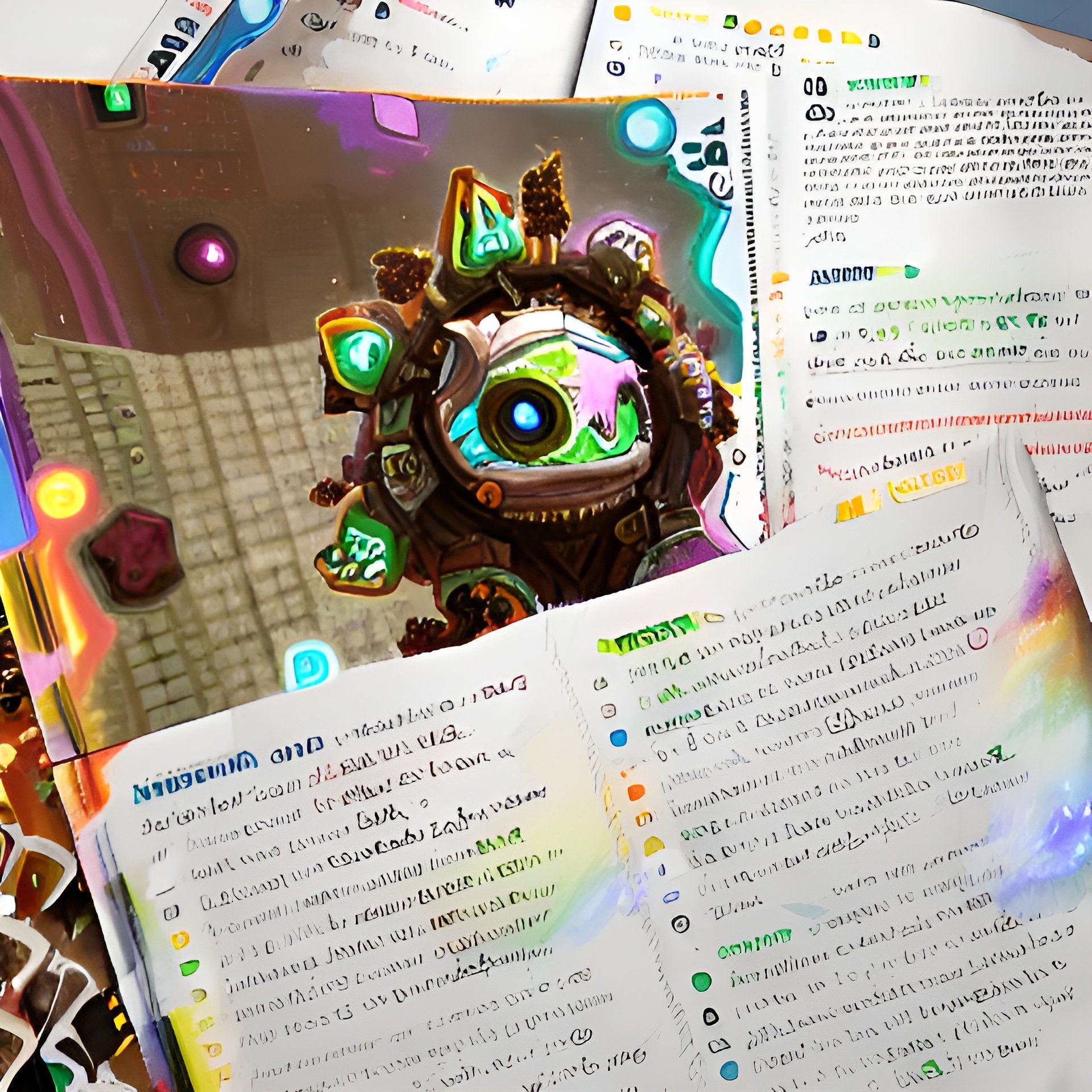
Expanding Consciousness: Embracing Diversity, Engaging in Dialogue, and developing through Understanding


open dialogue is crucial for personal growth and fostering a deeper understanding of the complex tapestry of human experiences. By actively seeking out different viewpoints and embracing the richness of diverse backgrounds, beliefs, and cultures, we can broaden our horizons, cultivate empathy, and develop a more nuanced understanding of the world around us.
When we expose ourselves to a variety of perspectives, we challenge our preconceived notions and biases, opening the door to personal growth and self-improvement. Through this process, we can gain fresh insights, spark creativity, and ultimately become better equipped to navigate the complexities of modern life. Furthermore, engaging with diverse perspectives encourages the development of critical thinking skills, as we learn to analyze, evaluate, and synthesize information from a wide range of sources.
In essence, embracing diversity and engaging in open dialogue is not only essential for personal growth, but it also fosters a more inclusive and empathetic society. By seeking out diverse perspectives and remaining open to challenging conversations, we can break down barriers, foster understanding, and ultimately create a world that celebrates and honors the unique contributions of all its inhabitants.
To understand the delicate balance existing within the universe is a concept that Hermetic Chaos is particularly interested in. Acknowledging that all parts of life are connected, we can learn to appreciate the beauty and balance of life's complex and detailed pattern.
Introduction to the Importance of Seeking Diverse Perspectives for Personal Growth
Join The Growing Community
Strategies for Respectful Dialogue and Active Listening
In a world full of diverse perspectives and opinions, engaging in respectful dialogue and active listening is essential for personal growth, understanding, and empathy. By fostering open communication and appreciating the unique viewpoints of others, we can broaden our own horizons and develop a deeper sense of connection with those around us. This section will provide you with strategies to create an atmosphere of respectful dialogue and hone your active listening skills, enabling you to foster meaningful and enlightening conversations.
1. Establish a Safe Space:
Creating a conducive environment for open and respectful dialogue is crucial. Set some ground rules, such as respecting others' opinions, refraining from personal attacks, and allowing everyone an opportunity to speak. Establishing a safe space encourages participants to express themselves without fear of judgment or hostility.
2. Practice Active Listening:
Active listening involves fully focusing on the speaker, absorbing their message, and responding thoughtfully. To practice active listening, avoid interrupting the speaker, maintain eye contact, and provide nonverbal cues, such as nodding, to show engagement. Summarize or rephrase the speaker's points to ensure you have understood them correctly, and ask clarifying questions when necessary.
3. Validate Others' Perspectives:
Validating others does not necessarily mean agreeing with their views, but rather acknowledging and appreciating their thoughts and feelings. To validate someone's perspective, you can say something like, "I can see why you feel that way" or "That's an interesting point of view." This creates an atmosphere of mutual respect and understanding.
4. Use "I" Statements:
When expressing your own thoughts and feelings, use "I" statements to avoid sounding accusatory or confrontational. For example, instead of saying, "You're wrong about that," say, "I understand your point, but I see it differently because..." This approach fosters a more collaborative and less defensive atmosphere.
5. Avoid Derailing Tactics:
Stay focused on the topic at hand and avoid using tactics that can derail the conversation, such as changing the subject, making personal attacks, or using sarcasm. Keeping the discussion focused and respectful helps ensure a more productive and meaningful dialogue.
6. Encourage Equal Participation:
Make an effort to ensure that everyone has an opportunity to share their thoughts and ideas. Actively solicit input from quieter participants, and avoid dominating the conversation. This helps create a more inclusive and diverse dialogue, fostering a richer understanding of the subject matter.
7. Reflect and Learn:
After engaging in a respectful dialogue, take some time to reflect on the conversation and consider what you've learned. Assess your own listening and communication skills, and identify areas for improvement. Recognize the value of diverse perspectives and the growth that can result from engaging in open and respectful dialogue.
By adopting these strategies for respectful dialogue and active listening, you can create a space where diverse perspectives are valued and appreciated. Engaging in open and meaningful conversations not only enriches our understanding of the world but also contributes to personal growth and strengthens our relationships with others. As you continue to practice and refine these skills, you'll find that you are better equipped to navigate complex discussions and foster a deeper sense of empathy and understanding, ultimately leading to a more harmonious and interconnected world.



Delving into a World of Diverse Viewpoints


Introduction: The Value of Exploring Different Perspectives
Embracing a variety of cultural, philosophical, and intellectual viewpoints can significantly enhance our understanding of the world and foster personal growth. By immersing ourselves in the diverse beliefs, ideas, and traditions that make up our global community, we can develop a more comprehensive and empathetic perspective on life. This section will provide examples of different viewpoints and suggest ways to explore these rich and varied ideas, promoting intellectual curiosity and open-mindedness.
Cultural Perspectives:
-Indigenous cultures and their connection to the natural world
Eastern philosophies, such as Confucianism, Buddhism, and Taoism
Western culture's emphasis on individualism and personal achievement
African Ubuntu philosophy, which emphasizes the interconnectedness of humanity
Philosophical Viewpoints:
Existentialism and the search for meaning in life
Utilitarianism, which focuses on maximizing happiness for the greatest number of people
Deontology, which emphasizes duty and adherence to moral principles
Stoicism and the cultivation of inner resilience and tranquillity
Intellectual Disciplines:
The scientific method and its emphasis on empirical observation and experimentation
The humanities, which explore the human experience through literature, history, and art
The social sciences, which analyze society and human behaviour
The study of ethics and moral philosophy, which examines the principles that guide our actions and decisions
Embracing the Rich Tapestry of Ideas
By exploring a wide array of cultural, philosophical, and intellectual viewpoints, we can gain invaluable insights into the complexity and beauty of human existence. Engaging with diverse ideas not only expands our knowledge but also fosters empathy, open-mindedness, and critical thinking. As you continue to delve into different perspectives and traditions, you will find yourself enriched by the wealth of wisdom and inspiration the world has to offer.

Overcoming Biases and Fostering Open-Mindedness
Recognizing the Need for Open-Mindedness
In order to truly embrace diverse perspectives and experiences, it's crucial to overcome our biases and cultivate an open-minded attitude. Acknowledging that we all have inherent biases can be the first step toward dismantling them and promoting a more inclusive and empathetic mindset. The following tips can help you overcome biases and foster open-mindedness in your everyday life.
1. Self-awareness:
Reflect on your own beliefs, values, and biases. Be honest with yourself about any preconceived notions or stereotypes you may hold, and work to understand the origins of these biases.
2. Empathy:
Cultivate empathy by putting yourself in another person's shoes and trying to understand their experiences and feelings. This can help you see the world from different perspectives and appreciate the diversity of human experiences.
3. Active listening:
When engaging in conversations, practice active listening by giving your full attention to the speaker, refraining from interrupting, and asking open-ended questions to encourage deeper understanding.
4. Seek out diverse sources of information:
Read books, watch documentaries, or attend lectures and events that present perspectives different from your own. This will expose you to new ideas and challenge your assumptions.
5. Engage in respectful debate:
Participate in discussions and debates with people who hold different views from your own. Approach these conversations with respect and a willingness to learn, rather than trying to prove yourself right.
6. Be open to change:
Recognize that your beliefs and opinions can evolve over time as you gain new information and experiences. Be willing to reassess your views in light of new evidence or perspectives.
7. Practice humility:
Understand that you don't have all the answers and that your perspective is just one of many. Be open to the possibility that you may be wrong or have something to learn from others.
Embracing the Journey of Open-Mindedness
Overcoming biases and embracing open-mindedness is a lifelong journey that requires ongoing effort and self-reflection. By practicing these tips and cultivating an attitude of curiosity, empathy, and humility, you can dismantle your biases and foster a more inclusive and understanding worldview. As you continue on this path, you'll discover the transformative power of open-mindedness and the profound connections it can forge with those around you.



Building Empathy and Understanding through Shared Experiences and Stories


Introduction: The Power of Shared Experience and Stories
Stories have the unique ability to transport us into the lives of others, allowing us to gain insight into their experiences, emotions, and perspectives. By engaging with the narratives of others, we can build empathy and understanding, fostering stronger connections and promoting a more inclusive and compassionate worldview. In this section, we'll explore the ways in which shared experiences and stories can help us build empathy and understanding.
1. Reading diverse literature:
Delve into books and articles written by authors from various backgrounds and cultures. This exposure to different experiences and perspectives can help broaden your understanding and empathy for others.
2. Engaging with personal narratives:
Seek out memoirs, autobiographies, and personal essays that offer firsthand accounts of people's lives and struggles. These narratives can provide intimate glimpses into the emotions and experiences of others, fostering empathy and compassion.
3. Participating in storytelling events:
Attend storytelling events, such as The Moth or StoryCorps, where people share their personal stories in front of an audience. Listening to these stories can help you connect with others on a deeper level and appreciate the complexities of the human experience.
4. Sharing your own story:
Open up and share your personal experiences and emotions with others. By allowing yourself to be vulnerable, you invite others to empathize with your journey and foster deeper connections.
5. Engaging in cultural exchange:
Participate in cultural exchange programs, workshops, or events that bring together people from diverse backgrounds. These experiences can provide opportunities for meaningful dialogue and shared experiences, breaking down barriers and fostering understanding.
6. Supporting art and media that promote empathy:
Watch films, documentaries, and theater productions that explore the lives and experiences of people from diverse backgrounds. These artistic expressions can help humanize complex issues and build empathy for the experiences of others.
Conclusion: The Transformative Impact of Empathy and Understanding
By actively engaging with shared experiences and stories, we can cultivate empathy and understanding for those around us, transcending barriers and fostering a more inclusive and compassionate world. Embrace the power of narrative to bridge divides, forge connections, and promote a deeper understanding of the vast tapestry of human experiences.
